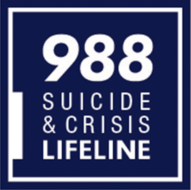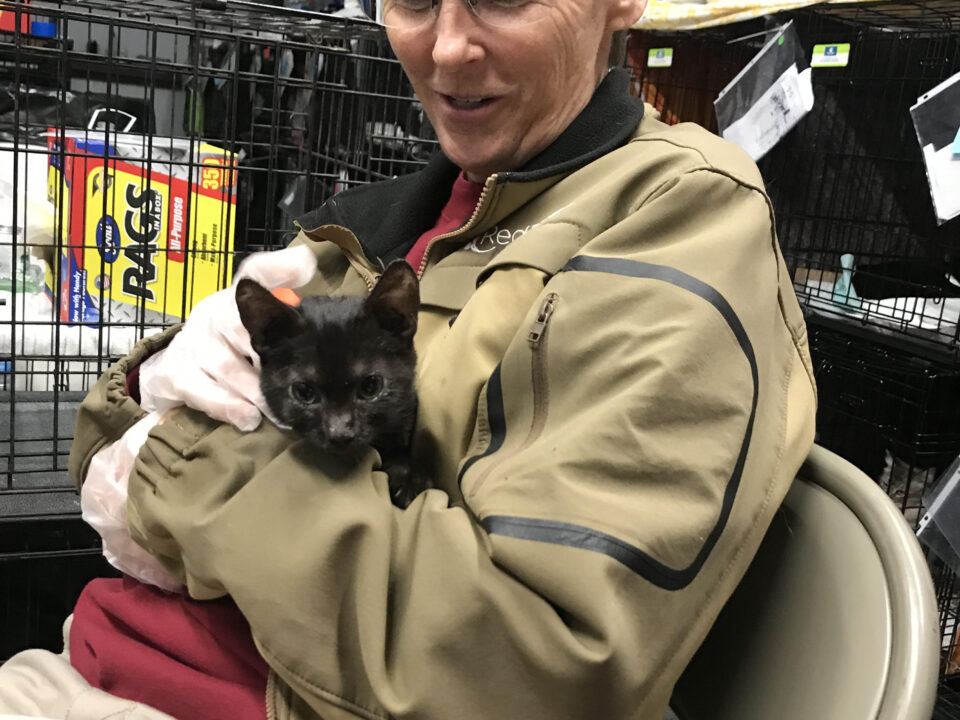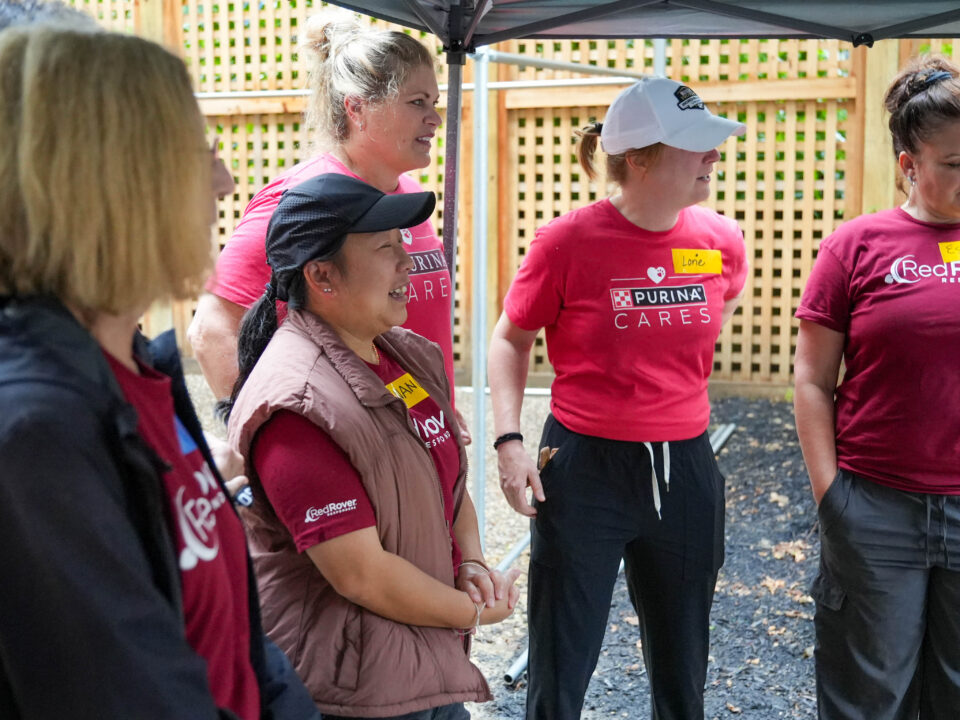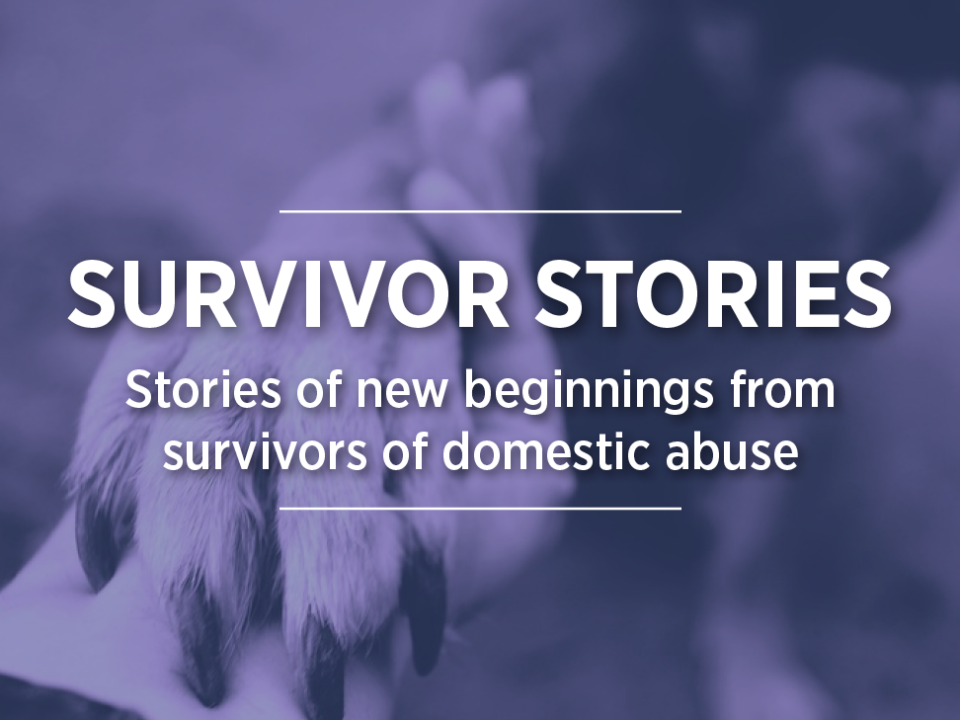Macy and Me: A lifesaving bond
October 4th, 2022
By Savannah Verdon, Development and Engagement Coordinator
Content warning: this story includes reference to suicide.
You may know me as the author of many of RedRover’s Happy Tails. Finding the most heartwarming – and sometimes heartbreaking – stories to share with our supporters means that I regularly read through RedRover Relief Urgent Care and Safe Escape grant applications from families in crisis. Whether they’re faced with a veterinary emergency or looking for safe haven for the whole family, one thing remains true for nearly everyone who reaches out to RedRover for help: their pets are life savers.
Sometimes they are speaking about their pets symbolically making a lifesaving difference, but I have read countless applications over the years from people who very literally mean that their pet has saved their life. And I am one of those people.
ADOPTING MACY
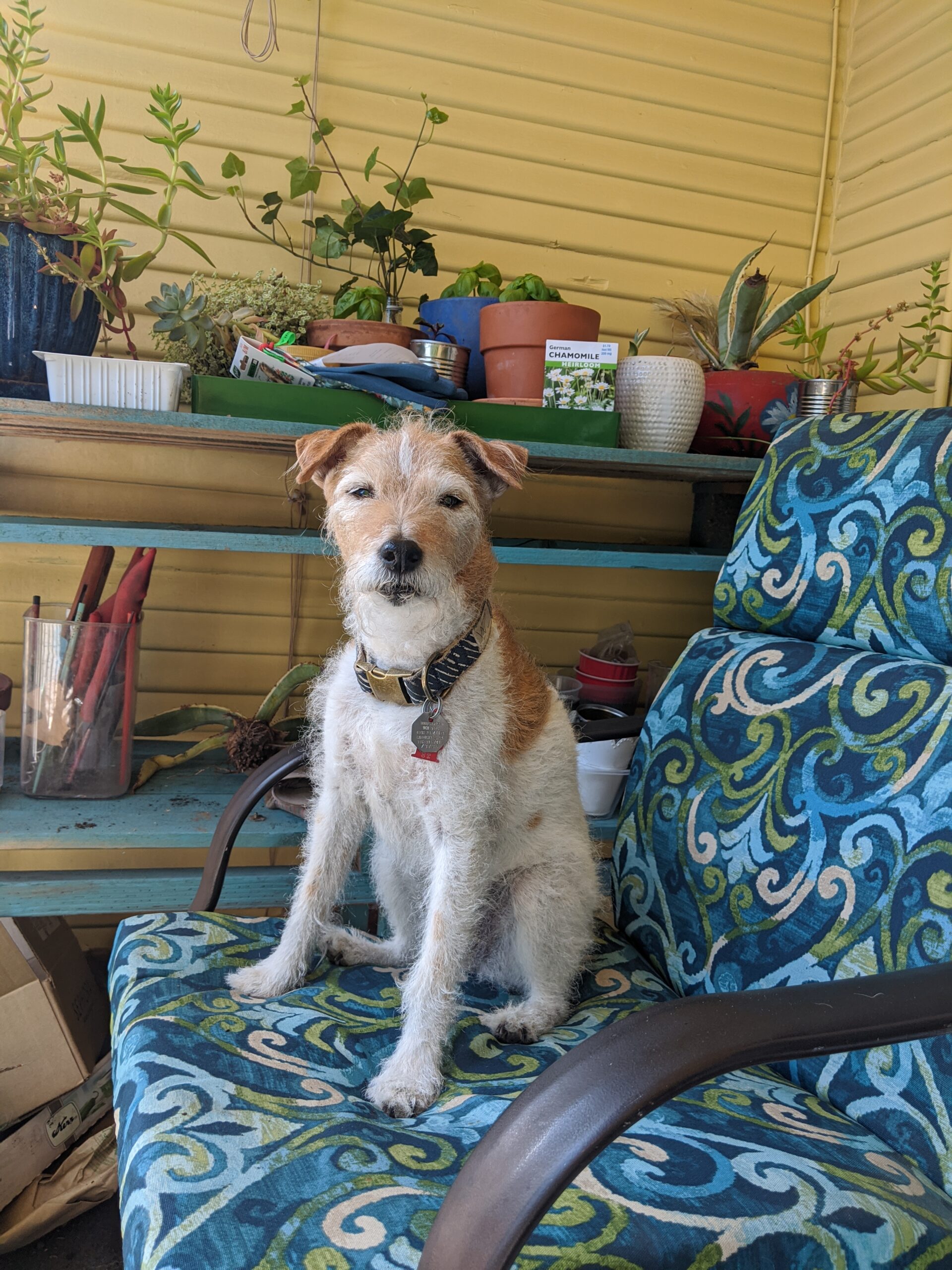 I adopted my little old lady dog, Macy, late in 2017. She was already 10 years old at the time, and I was just a few months past my 24th birthday – but it felt like I had already lived 1,000 years. I was miserable in my first job after finishing graduate school and searching in vain for another opportunity. As I prepared for a hopeful interview with my local SPCA, I frequently returned to their website. Regardless of what information I was looking for, I always found myself looking at their adoptable dogs.
I adopted my little old lady dog, Macy, late in 2017. She was already 10 years old at the time, and I was just a few months past my 24th birthday – but it felt like I had already lived 1,000 years. I was miserable in my first job after finishing graduate school and searching in vain for another opportunity. As I prepared for a hopeful interview with my local SPCA, I frequently returned to their website. Regardless of what information I was looking for, I always found myself looking at their adoptable dogs.
My dog Jack, who had been my best boy since junior high school, had passed away from throat cancer six months earlier. I was on the other side of the country and couldn’t be there for him in his last moments. I had already missed so much that year: my only sister had given birth to her first child, and my father had been diagnosed with prostate cancer. It felt like life was kicking me when I was down, and inside I felt like a helpless child.
So when I saw a scraggly little tan and white dog with a crazy grin and an even crazier glint in her eyes available for adoption, I needed her. I couldn’t explain how much I needed her, except to say that I didn’t think I could keep living life without her. My father adopted Macy on a Saturday while I worked a busy, seemingly endless day, texting him for updates as often as I could. When I finally came home, 15 pounds of wiry hair greeted me at the door.
Reading through her adoption paperwork, I learned we were at least Macy’s third family. She had most recently lived with an elderly gentleman, and when he went into hospice care, his family brought her back to the shelter, where she had been surrendered a few years before. The first seven years of her life were a total mystery.
And it showed. Macy had a lot of quirks, as I like to say. While she would growl and snap if you brought your face too close to hers, she was also a skilled trickster and could perform “sit,” “spin,” “bark,” and, my personal favorite, “high five” on command. She never wanted to cuddle, and accepting scritches was hit or miss, but every time I turned around she was within two feet of me. Maybe she wanted love, but couldn’t accept it. And that I understood intimately. I suspected she might feel 1,000 years old on the inside, too.
In 2019, my other childhood dog, Tank (an aptly-named chubby corgi), passed away unexpectedly. He took my last connection to childhood with him, and now I felt I had no choice but to be an adult. When the COVID-19 pandemic came not long after, I took that as my cue to move out of my father’s house. He had been successfully cured of prostate cancer by then, and he no longer needed a helper.
Were it not for Macy, I’m not sure I would have found a place to rent. Her sweet face was the key selling point to my prospective roommate, and before I could give it much thought, Macy and I were big city gals living (almost) on our own for the first time. In retrospect, this was the right decision for us, but it was about to send me on the scariest rollercoaster of my life.
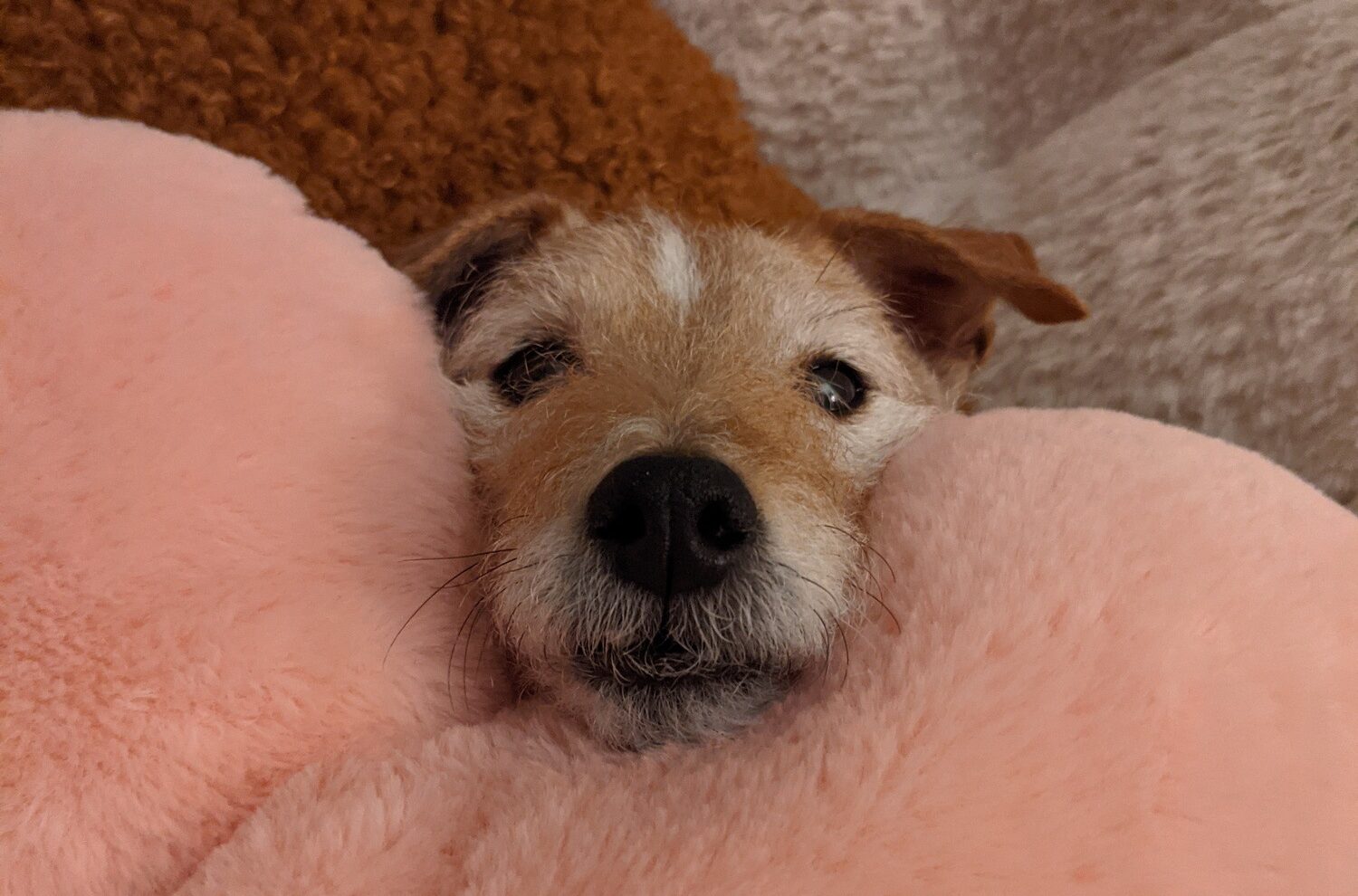
“I FELT ALONE IN MY COMPLETE INABILITY TO COPE”
Things had, of course, become more intense and uncertain for everyone that summer of 2020, so when I felt like every tendon, muscle, and bone holding me together was pulled taut with anxiety, I figured I wasn’t alone. However, as I’m sure is the case for so many others, I did feel alone in my complete inability to cope. I felt weak and stupid and worthless because simple things had become impossible and I couldn’t seem to get anything right. I had thousands of ideas and miles-long lists of things I wanted to do, but I just couldn’t make myself move. I was deliriously angry with my roommate over the pettiest of disagreements, and I took it out on my family, going out of my way to erode whatever love for me I thought they had left. I was hurting, and desperately out of control. Every day, all day sometimes, I thought about quitting the job I adored, destroying the things I cherished, and ending my life just to make the people I love suffer. The void inside me had become so deep and wide and dark that soon I wished I could just feel nothing at all.
And I had the opportunity to do the irreversible. There were long weekends when my roommate left town with her partner, leaving me alone in the apartment. I could take Macy over to “the dog pound,” as my sister and I lovingly refer to our father’s house, where dogsitting is free and the treats flow liberally. She would be taken care of if I was gone – except for one thing.
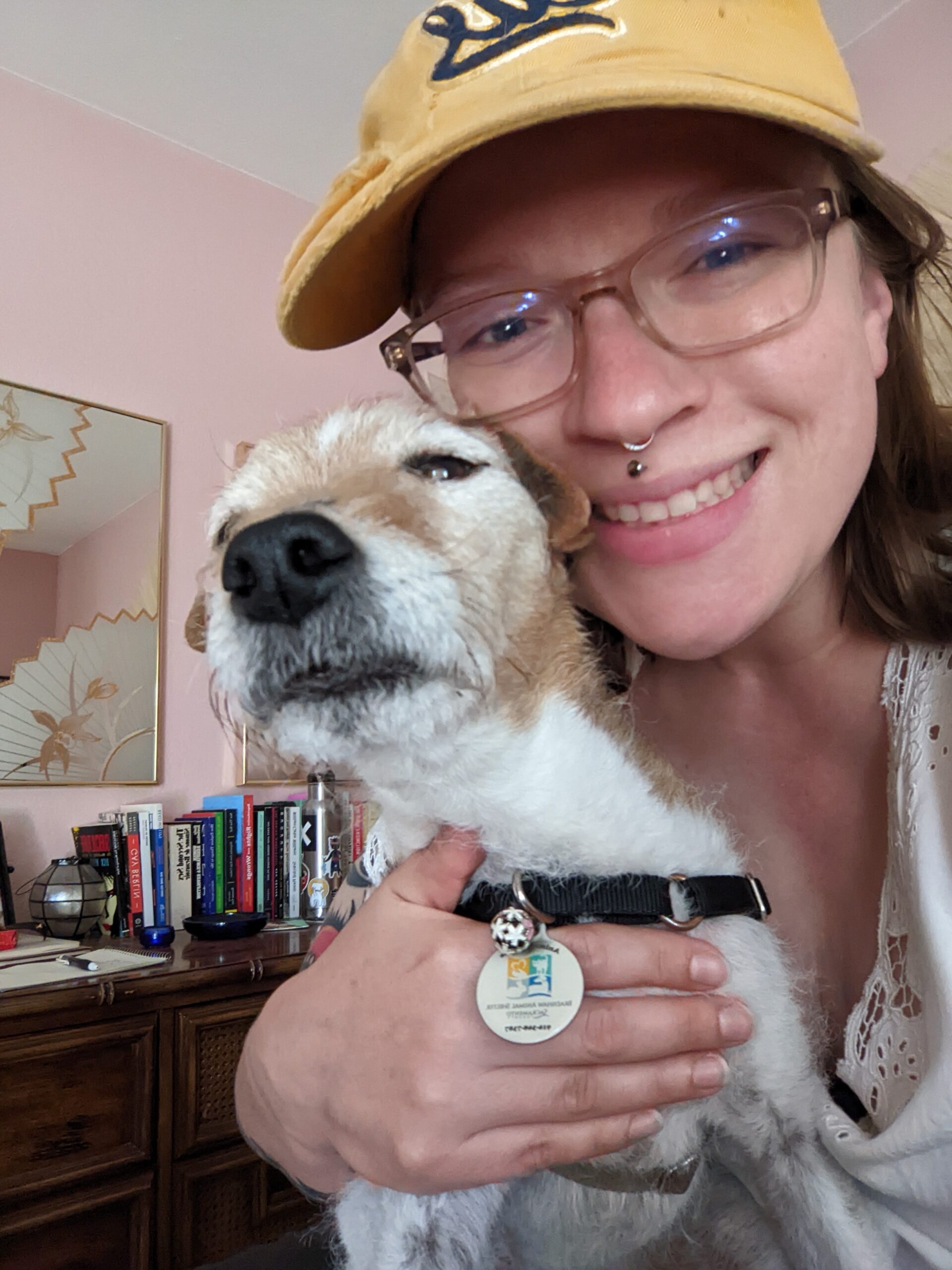
Walking Macy had always been my reprieve, and I like to think it was hers, too. We’d traded the soft rolling hills of my old neighborhood for flat city blocks, and though she was 12 that summer, she and I would walk for miles. She deserved her walks, and I knew my father wouldn’t be able to take her.
I talked to her as we snaked through the city grid every day. Morning or night, bustling or deserted, I did my best to articulate to her what I was feeling because I couldn’t seem to make anyone else understand. And she just trotted on, granting me the serenity to reflect on why I felt so out of control. It took me many miles to realize I had not simply lost my mind over a bad living situation (or the once-in-a-lifetime global crisis), and that these feelings were very familiar.
While the confluence of the pandemic and a major change like moving out had magnified my anger and dread, that sense of being out of control had been with me for six years at that point, preceded by a childhood and adolescence ruled by anxiety. It occurred to me that the very first time I’d felt that way had been during my senior year of college – the first time I had to seriously confront the prospect of growing up. Something inside me was deeply afraid of the future. I had tried antidepressants in the past, but they only seemed to make things worse. No amount of therapy helped either. Then again, I had never allowed myself to take it seriously.
But I’d always journaled avidly, more out of a love for writing than any real desire for self-reflection. Rereading old journals that summer, it clicked: I reliably bounced between months of feeling frenzied and months in deep despondence, never in control of my emotions, and with the allure of suicide ever-present. Was I bipolar?
THE DIAGNOSIS
The realization that I might not simply be “broken” after all gave me the resolve I had always wanted to just do something. As I entered what I now know was another manic episode, I made the decision, perhaps impulsively and wholly unprepared, that I was going to buy a place for Macy and me to call our own. I knew it was dangerous to be living alone while having suicidal ideation, but I desperately needed the solitude. I needed to be free from the pressure of navigating other people’s feelings if I wanted to comprehend my own. And if Macy was with me, was I really alone? My plan was twofold: buy a condo and talk to a psychiatrist.
For once I channeled my feverish mind in a good direction, starting with making an appointment to see my general physician. She prescribed me a different antidepressant and referred me to a psychiatrist. The absolute privilege of this was never lost on me – adequate mental healthcare is woefully inaccessible in the U.S., while affordable health insurance remains out of reach for many people as the fight for universal health coverage continues.
With the new medication, the constant feeling of being on the verge of tears that I had experienced for years was gone, giving me some hope that I was on my way to feeling “better.” It was certainly a welcome relief while I waited nearly four months to see the psychiatrist. In the meantime, I used my walks with Macy to make sense of the last six years and reframe the things I had been punishing myself for as perceived personal failings into a coherent and compassionate narrative of someone who was ill. While I felt relief at the prospect of being diagnosed with bipolar disorder – both to be correct in my theory and also to begin treatment – I was afraid of how it might change things. Would people think of me differently? Would I recognize myself if my life was no longer defined by this illness? What if I still felt like a failure even with medication? I had to hold tightly to the belief that even if I was a failure, or felt like one regardless, I could always do one thing right: be there for Macy.
By the time I was able to see a psychiatrist in early May of 2021, I had been living in my condo for two weeks. This was after three grueling months of renovating the space, an experience so fraught that all of the trouble with my roommate now felt laughable. But I had survived, and Macy and I had the space to be ourselves. She had never stopped being a strange, aloof little dog, but she had grown more forthcoming with her love, licking my hands when I reached out to her. She not only tolerated being scritched and scratched, but she walked back and forth to make sure I got all the good spots. And she still loved her walks.
In the psychiatrist’s office, it took me nearly 30 minutes to explain the long six years (technically 27 years and a few generations before that) that had brought me there, and less than 30 seconds for him to agree that I had bipolar disorder. Bipolar I disorder, in fact. He recommended I continue to take the antidepressants and see my therapist regularly, with whom I was sincerely working through my thoughts and feelings over the past months. I left his office with a prescription for a mood stabilizer as well, feeling more grown-up than ever.
Over another long summer, I painstakingly found the right dosage of my medications and explored my troubled mind further. Things were coming a little easier. I could make decisions and act on them, I could react to bad news with equanimity, and I could trust in a future where things just might be okay – even as Macy’s health began to decline.
I was busy taking stock of my life and figuring out what I wanted for the next few years, so I didn’t notice right away that she was sleeping more and our walks were getting shorter. I didn’t think much of it when she started going potty on the rug more often either. She was 14 now, after all. But I couldn’t ignore it when she stood still and then fell over one day in January 2022, her legs no longer cooperating. She was up and fine just as quickly as she had fallen, but a new chapter had begun for us. When she couldn’t walk past the end of our street, I knew Macy was dying.
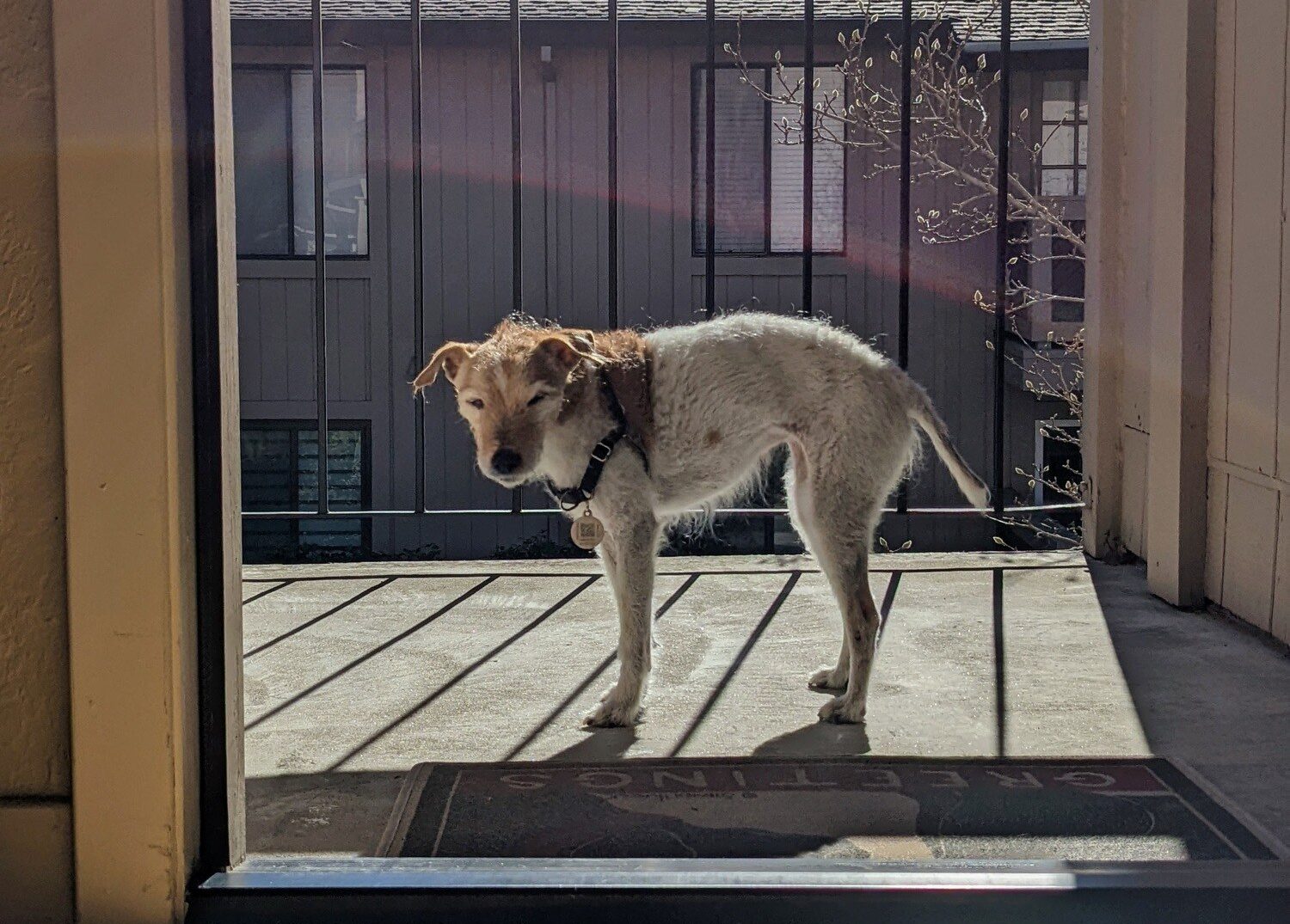
“THERE WAS NOTHING I WOULDN’T DO FOR HER”
Since 2019, I had been giving her a liver supplement and feeding her a prescription diet. We did her blood work every three months, and years passed with her liver values staying in a healthy range. Her first blood workup after the sudden collapse confirmed my fears, and though the veterinarian recommended we continue her treatment, he also suggested I prepare to say goodbye. To make matters worse, it was around this time that my sister’s son was diagnosed with a rare genetic disorder. He was in the NICU almost immediately after birth seven months earlier and surgery in the first week of his life. My sister and brother-in-law spent months meeting various specialists in between trips to the ER and long days at the hospital to find the root of his medical complications. There was no way of knowing what his life might look like as he grew up or how this might affect his two big sisters. Uncertainty had never been kind to me – it seemed that 2022 was going to be another 2020.
Despite the medications and all the hard work of dismantling the bad behaviors I had used as a crutch, the symptoms of my bipolar disorder had never fully gone away. What had changed was that I was aware of my emotions as they swung back and forth, and I could get a grip on them before they took over my life. But, ill-equipped to handle the news about my nephew and faced with the reality that I was going to lose the little being I loved and needed the most, I felt my sense control slip through my fingers as the familiar temptation of ending my life returned as strong as ever.
Solitude helped me close the door on these painful thoughts before they consumed me completely. Alone in the condo, I could sob as much as I wanted and repeat “it’s not fair” until I passed out cold, and Macy would only judge me if I forgot to feed her first.
Mostly blind, selectively deaf, and much to her independent self’s chagrin, she needed more care and attention by then. We had our routines. I fed her jars of baby food when she began to refuse her prescription diet and smushed up Vienna sausages when her teeth bothered her. I carried her up and down the stairs for potty breaks many times a day, and we took painfully slow walks around the condo complex. I was attuned to her every movement, her every mood, and there was nothing I wouldn’t do for her. Caretaking can be a thankless job, but with Macy, it never felt like an obligation.
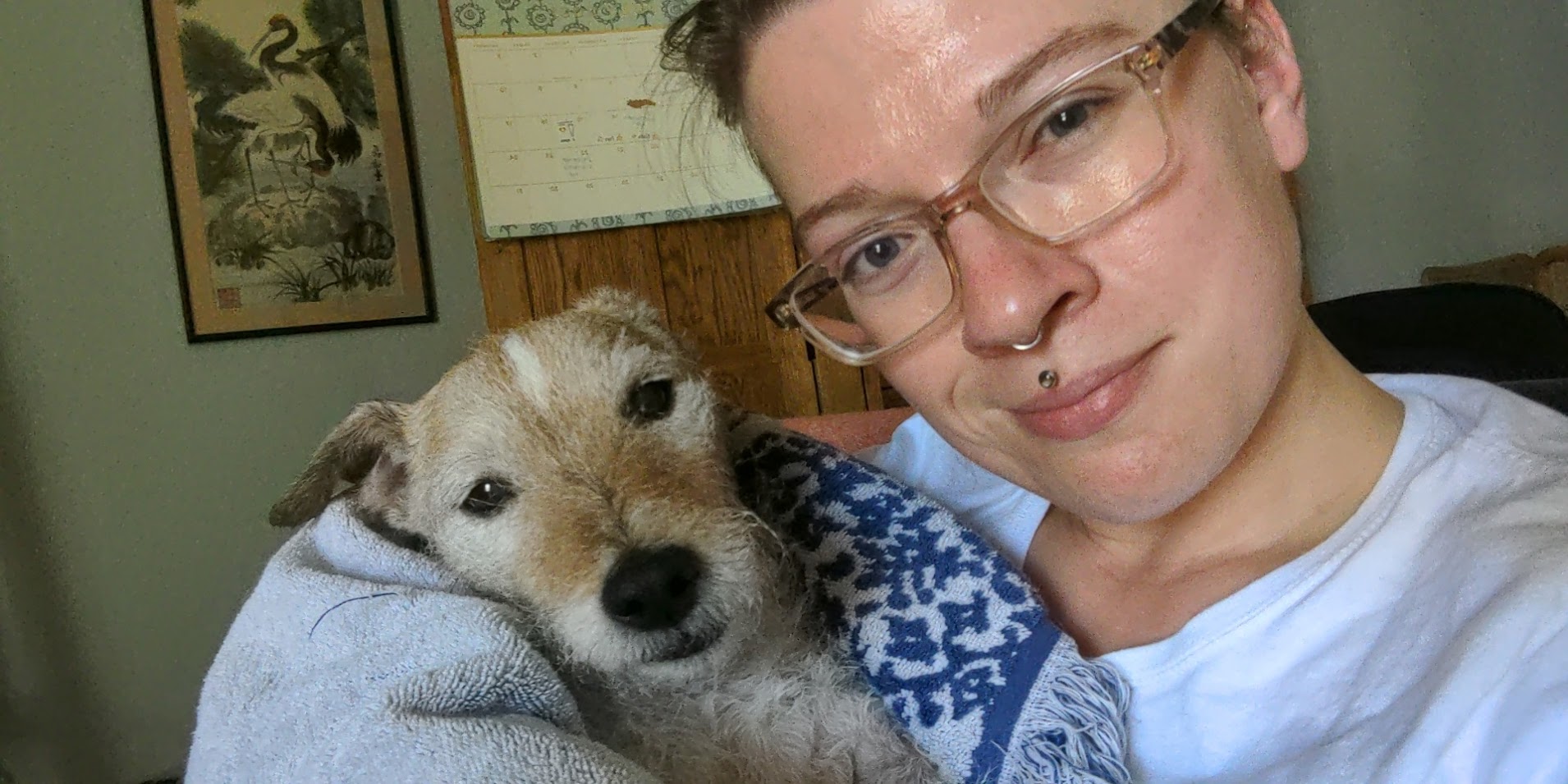
DISABILITY IS NOT ALWAYS VISIBLE
I was on a solo walk contemplating whether or not my family would ultimately be okay if I ended my life – not a positive thought, but a far cry from wanting to hurt them with my suicide – when I realized Macy would not be okay. And it wasn’t because she was old and needed someone to care for her; I knew my father would still do that. The truth was, Macy and I were the same inside: we had lived through so much loss, and it was hard to believe that good things would happen again. How many families had she had? How many people did she come to love only to lose them with no explanation? We had spent just about every day together for almost five years, and while she grumbled at me every single time I picked her up, I knew she loved me. She didn’t need the walks; she needed me just like I needed her from the moment I first saw her in 2017. Eventually, I would have to lose her, but she wasn’t going to lose me.
Very few people outside of my family ever knew I was struggling inside, both because I was ashamed and therefore private, but also because I was finishing college and graduate school, holding down a challenging job, buying my own place, and generally hitting all the milestones we consider to be necessary for success in American culture. My sense of humor, though dark, was always intact and I loved to laugh so much that the bar for finding something funny was buried six feet underground. I relished being an aunt, a sister, a daughter, a granddaughter, a friend, and Macy’s companion. And I thought about leaving all of that behind for good all the time.
The first week in October is Mental Illness Awareness Week. As the world continues to open up further during the pandemic era, please remember that disability is not always visible and that you may never know what someone is experiencing in their hearts and minds. Empathy is at the core of RedRover’s mission, and that means having not only the capacity but the desire to understand and share the feelings of another person. Even though the thoughts and feelings of someone with a mental illness can seem unfamiliar or downright scary, unconditional love for a pet is something we can all understand. And if we share that in common, perhaps we are not so different.
I turned 29 in late September, and Macy will be 15 in early December. I don’t know if she will make it that long. I am anxious over how I will feel when she is gone and frightened of a future without her. I dread the questions from well-meaning neighbors who wonder where she is. Without this wiry-haired, grumpy little anchor, I might drift off into that void I have spent so many months now shining a light on. But it was watching her grow old – not a mortgage or validation from a psychiatrist – that made me grow up, and growing up means going forward into an uncertain future.
I didn’t get the job with the SPCA, but I got my best girl Macy and my job with RedRover instead. My knack for journaling gave me the opportunity to write stories, real and heartfelt stories, about the lives we share with our animals. I can only hope that by reading me and Macy’s story, you’ve realized that, symbolically or not, a pet may have saved your life, too.

